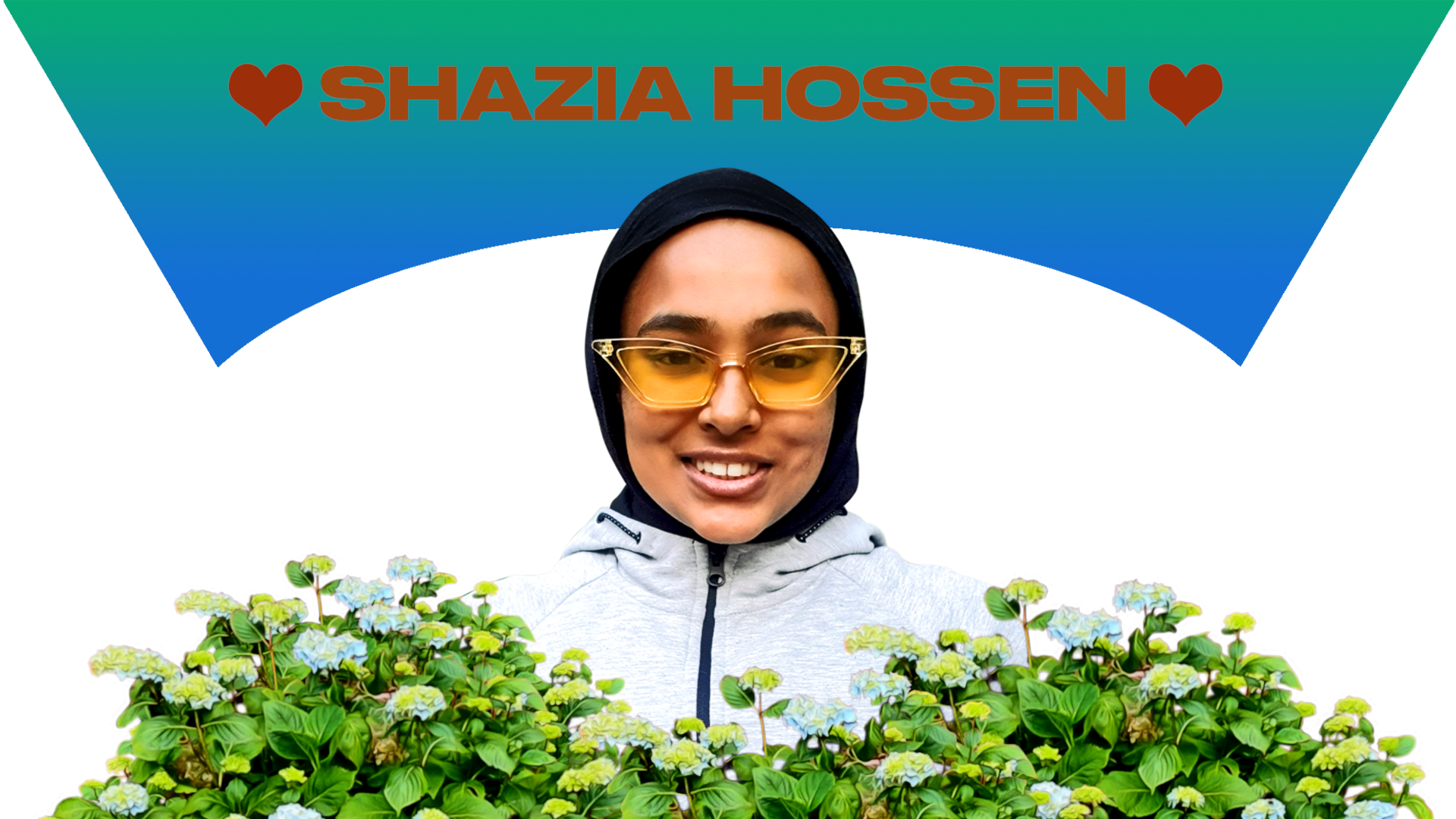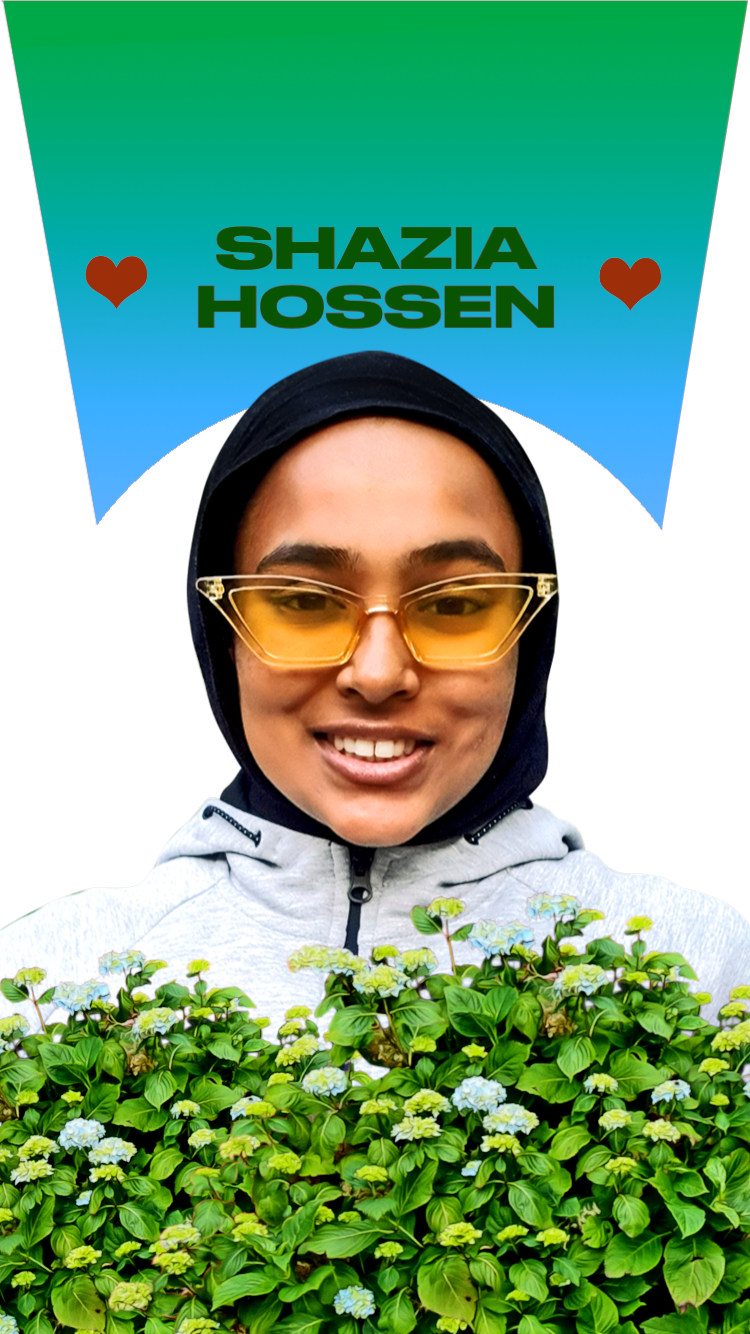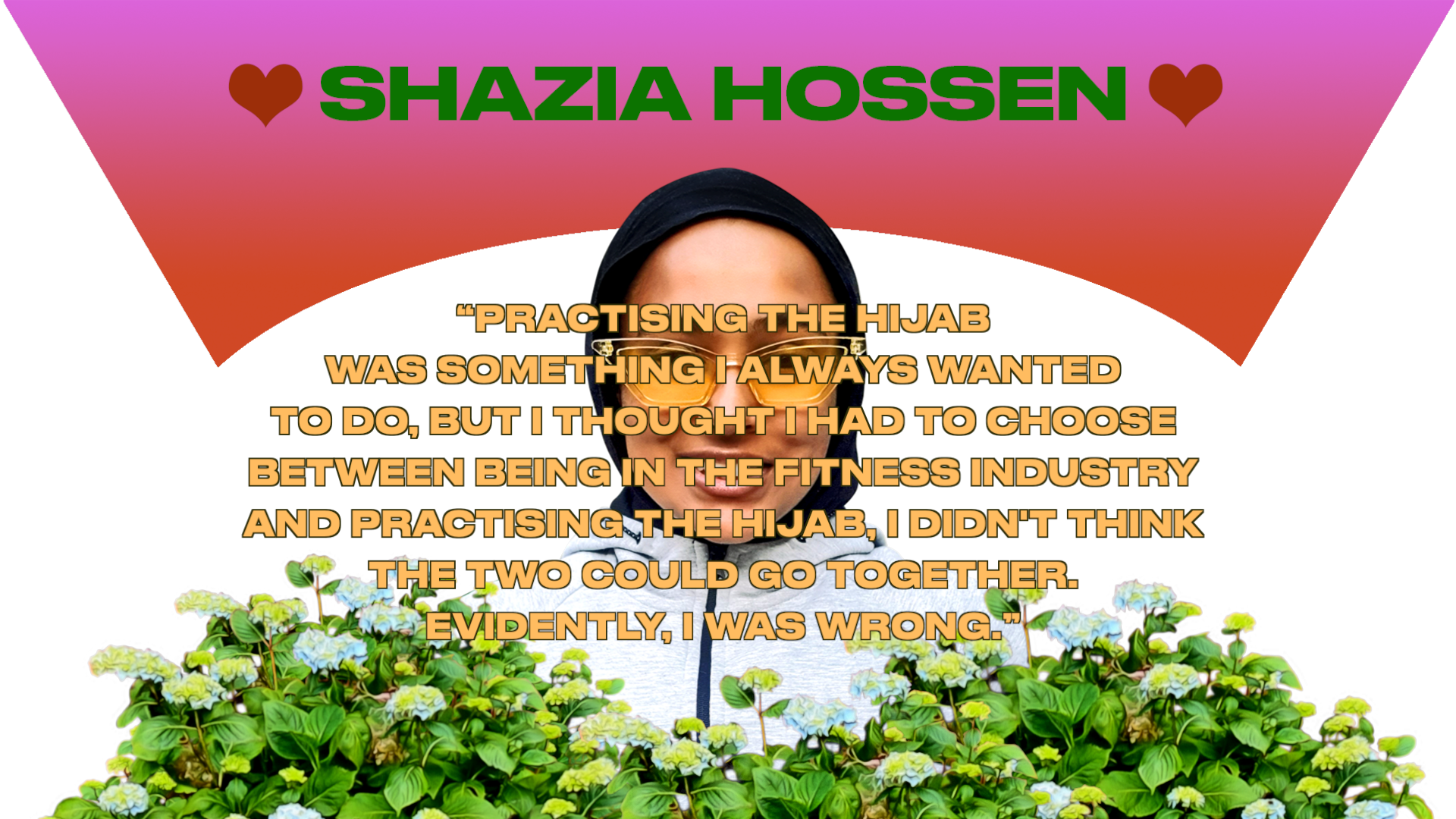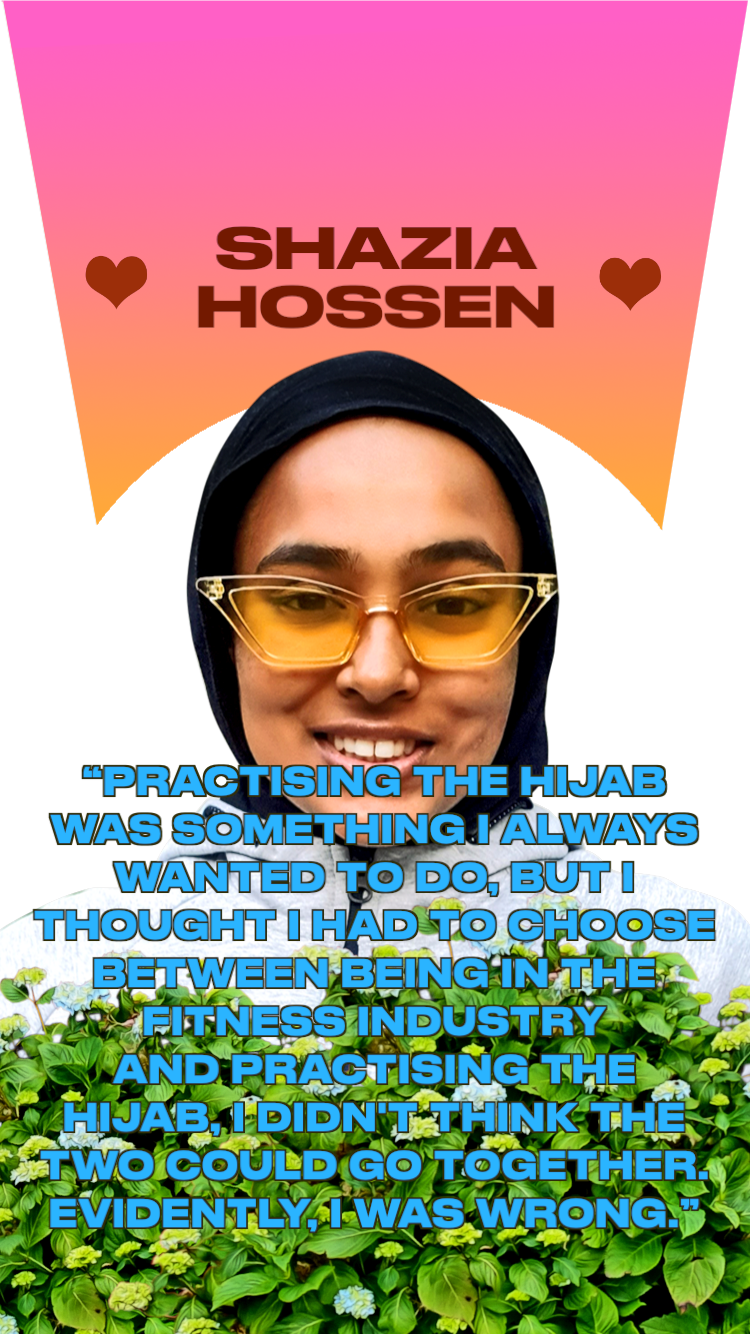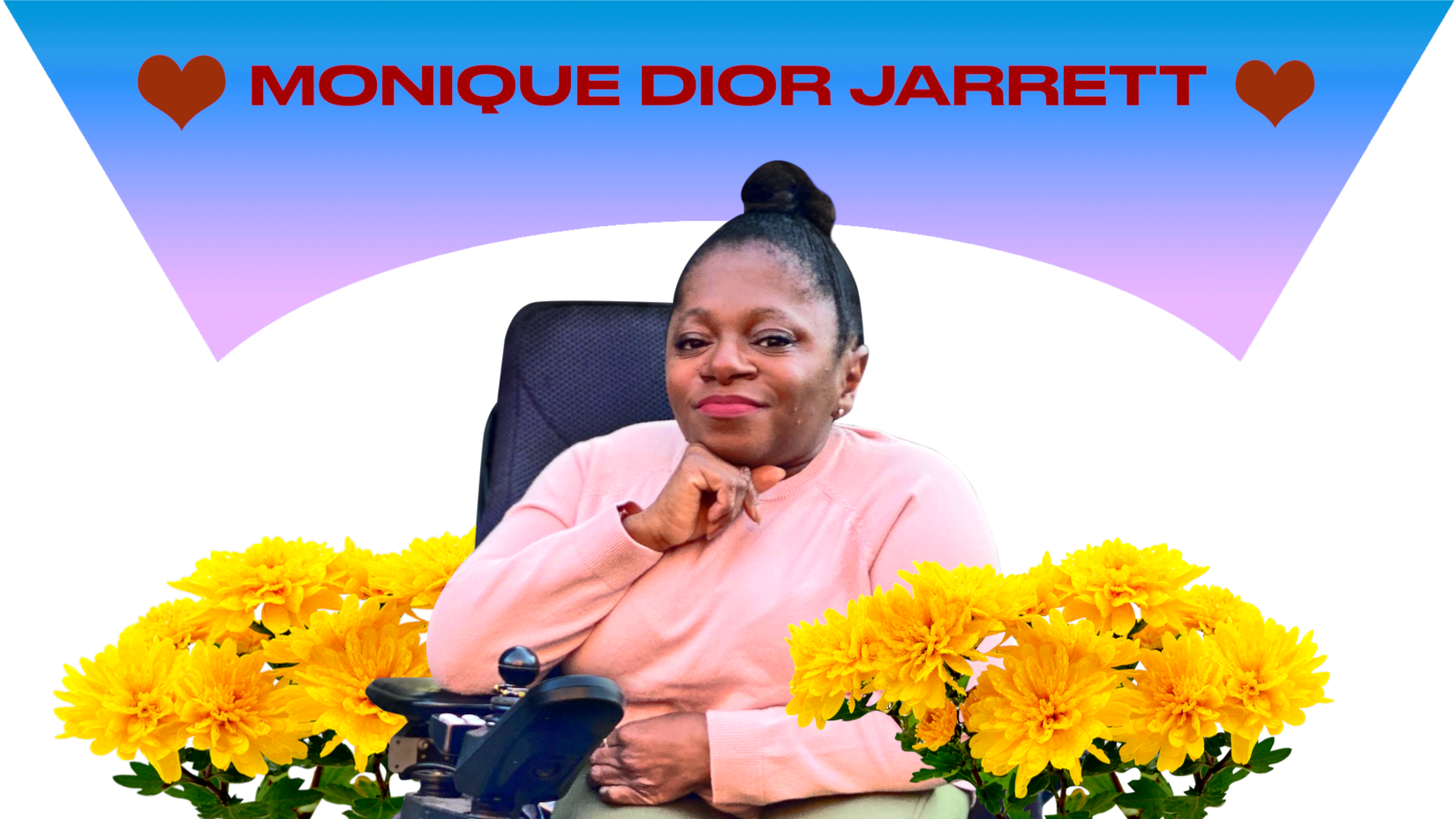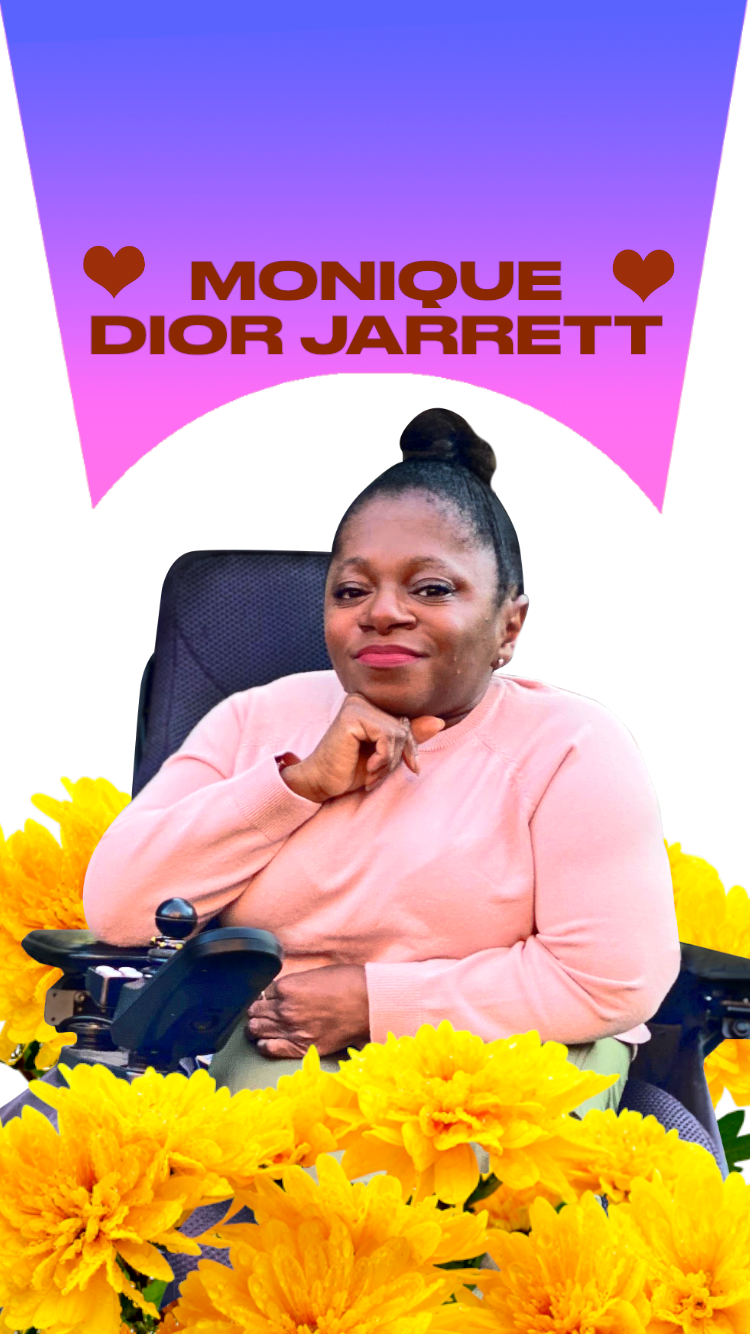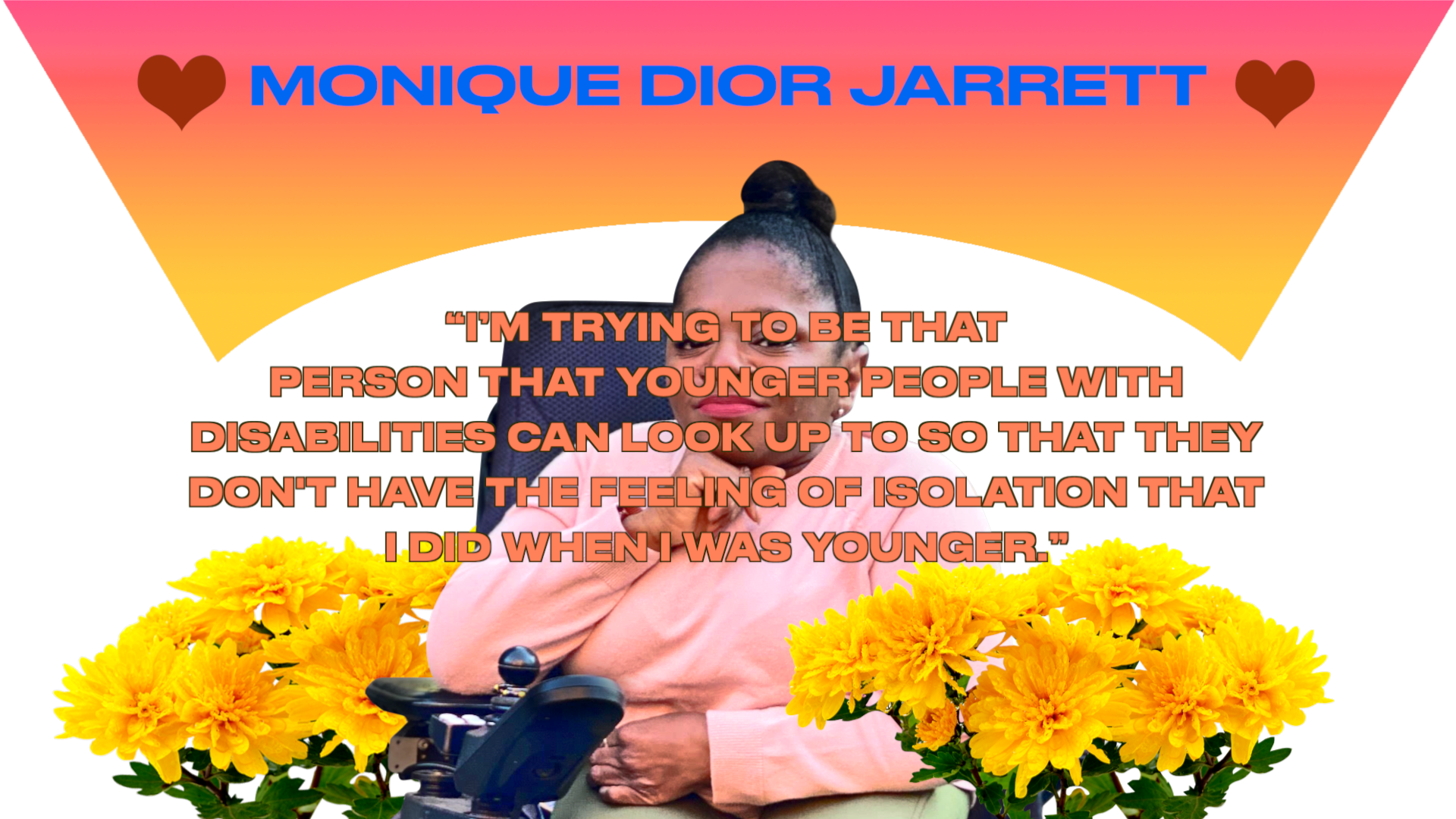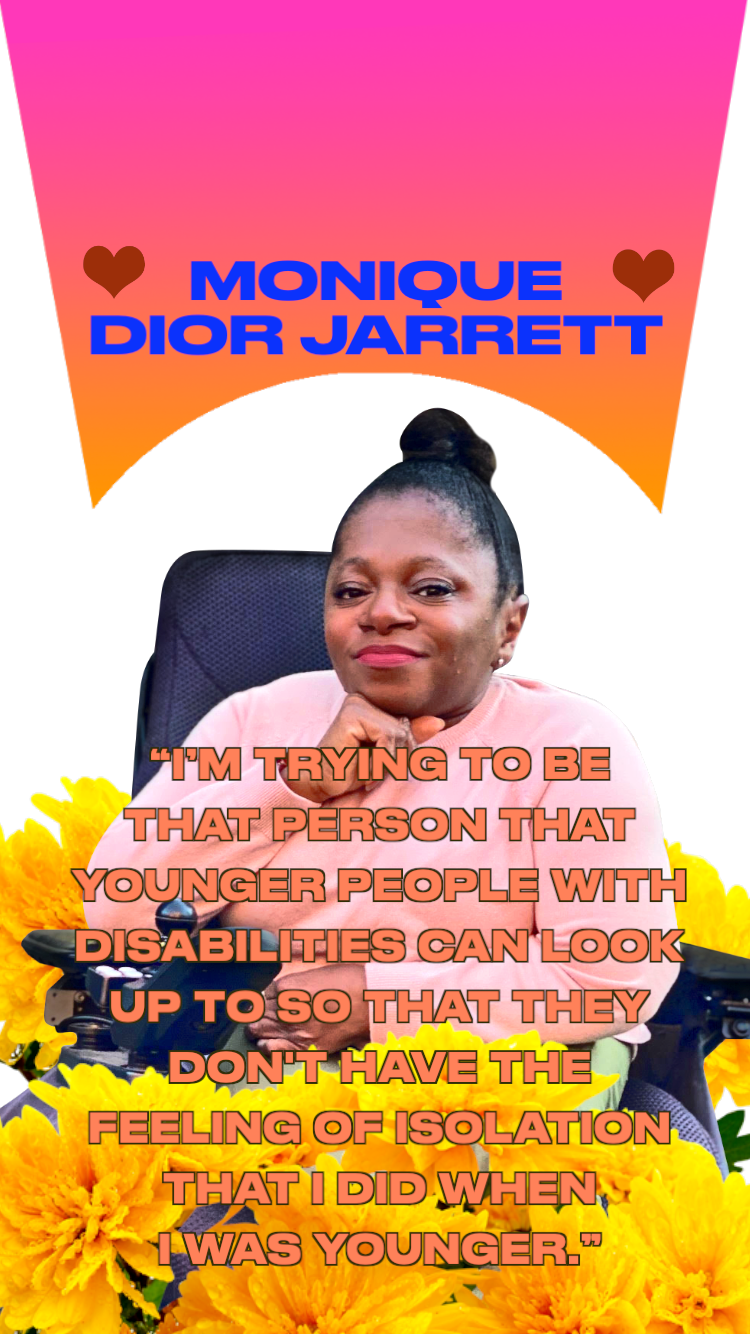“I Thought I Had To Choose Between Fitness & The Hijab – I Was Wrong.” Two Women Open Up About Their Bodies & Being Role Models
Human connection and feeling seen are vital to our sense of self and wellbeing. In a three-part series of virtual heart-to-hearts, as part of Refinery29’s Self-Service partnership with Dove, we’ve connected like-minded women to discuss beauty, body image, identity, visibility and activism in relation to self-esteem, to show the deep connection and wisdom that can come from speaking honestly about our experiences. In part two, Monique Dior Jarrett and Shazia Hossen meet on video call to discuss self-esteem, body image and physicality.
Monique and Shazia have made their names by entering and owning spaces they were previously told weren’t for them. Born with a severe form of osteogenesis imperfecta type III, more commonly known as brittle bone disease, Monique has broken over 100 bones over the years and carries out a morning 'bone check' to make sure she hasn’t broken anything new while sleeping. Having been told all her life that she couldn’t participate in the sports she wanted to, Monique is now a wheelchair dance champion in the Latin and Ballroom category and a magazine cover girl. Though she doesn’t like the word 'inspirational', Monique’s mission is to show young people with disabilities that they can push through the boundaries placed around them and experience the joy of movement in sport.
AdvertisementADVERTISEMENT
Shazia, aka Shaz Fit, is a personal trainer, model, body positivity advocate and founder of SH Athletics, a pioneering brand in modest activewear in the UK. Passionate about breaking down the barriers that women, Black and non-Black women of colour, and Muslim women specifically face when approaching sport, Shazia started SH Athletics to encourage more women to embrace fitness and open up the overwhelmingly male, overwhelmingly white industry to new audiences and athletes. Her work attracted the attention of Nike, who asked Shazia to launch their Pro Hijab on Instagram and the photo went viral. Shazia now models for several sports brands as well as creatively directing her own shoots and projects. As part of her multi-hyphenate business, she also runs AfroHijabi Events, a ladies-only events space celebrating self-love, strength and sisterhood. In December last year, AfroHijabi co-hosted Sistar Soiree with artist Misha B.
In this heart-to-heart, the two women share their journeys of self-esteem and physicality, discussing the importance of representation and passing the torch for other women.
Shazia: Good to meet you, Monique.
Monique: You too!
S: I watched your mini doc online, it was amazing. How did you get into dance?
M: Thanks! I started about four years ago. I was working at an SEN [special educational needs] school in Manchester and I was on reception when a lady came in to do a class with the children. She caught me dancing and suggested I try the Ballroom and Latin class. For years, I thought I couldn't do any sports and that I would never be able to build up muscle; it was really frustrating, especially seeing what my peers were doing and trying to do everything they did but breaking so many bones in the process. Finding dance and being able to do it and build up strength was amazing. To be able to show others that there are sports out there that they can do, no matter what disability or difference they have – that really boosts my self-esteem.
AdvertisementADVERTISEMENT
S: That’s so cool. How did you get into competing?
M: My dance teacher suggested I start competing and entered me! The first competition I did was in Manchester and it was really nerve-wracking, but no matter what place I came in, I felt I'd achieved something. I did it with my dance partner so we got to share that accolade together, which felt even more amazing and again, boosted my confidence. Then I went up a level in class and so met a new dance partner, and we started doing bigger competitions abroad in Slovakia and in Holland. My new dance partner hadn't travelled on a plane without a non-disabled adult before, so she was quite nervous but I was able to support her through that hurdle, which also boosted my confidence. We travelled with four wheelchairs between us! When I got back, my colleagues asked how I'd managed to travel alone and it occurred to me that nobody ever shows non-disabled people how a person with a disability gets on a plane! So I was able to educate them in that and they work with kids with disabilities, so they then passed on that information, saying, 'This is something you can do!' It was a ripple effect.
S: That’s amazing.
M: Thank you! What was your self-esteem like growing up? Did you always play sports?
S: For me, it’s linked to sport. When I started secondary school, young girls weren't encouraged to go out and play football on the astroturf and to stay active during lunchtime, that was something only boys did. There was also a stigma attached to being a single girl playing with all these boys, whereas in primary school, that was fine. For girls, there was a lot of pressure on body image and hairstyles. When I look back at my secondary school years, I just think about how mean kids can be. But towards the end, I kind of found myself. There was a point where I realised that sport was something I really enjoyed and I had been denying myself of it because of what other people thought, so I got back into it and it was really dope. That had a hugely positive effect on my confidence. What was your self-esteem like growing up?
AdvertisementADVERTISEMENT
M: I started off at an SEN school and I was quite active compared to a lot of the kids, so my self-esteem was pretty high because I didn't realise I was different. It wasn't until I got into mainstream school at about 9 years old that my self-esteem started going down because I realised I couldn't do a lot of things that other kids could do. It was at that point that I was told I couldn't do any activities like PE. At high school, my self-esteem built up a little because I started getting rebellious and doing things I shouldn't be doing and I got injured quite a lot. Then it switched again because I realised I'd never really seen anybody like myself in the media. It was around that time when all my friends had idols and people they looked up to, and I didn't have that, so my self-esteem went down again. It's a very up and down journey. At the moment, I'm trying to be that person that younger people with disabilities can look up to so that they don't have the feeling I did when I was younger. My self-esteem is higher but it's not at the top yet...
S: It’s a lifelong journey, I’m not sure we ever reach the top and stay there, we move up and down. In the fitness industry there's a lot of pressure to have a certain body type and you use your body to advertise your services online. When I started out as a personal trainer and started my @_shazfit Instagram account, I thought a lot about my body and whether I could even call myself Shaz Fit because I didn't look like other women in the fitness industry. I started wearing hijab four years ago and that was a journey in itself. Practising hijab was something I always wanted to do but I thought it had to be one or the other – being in the fitness industry or practising hijab, I didn't think the two could go together. Evidently I was wrong. I had an overwhelming amount of support when I started posting photos wearing it, but of course there were a lot of negative comments too, saying 'You shouldn't be doing that'. At first I felt like I had to keep explaining myself and justifying myself to people but now I just do me and let people think what they think. There was a period of about a year where I felt comfortable wearing hijab in daily life but not in the gym. What really helped me then was to connect with other women, especially Black and non-Black women of colour. I started actively following hijab-wearing athletes and gym-goers, but I had to really search for those accounts because they're not at the top of your search list.
AdvertisementADVERTISEMENT
M: Similar to me, it was amazing to get online and find communities of people who…didn't look exactly like me but were different and were powerhouses. They didn't care what anyone thought or what anyone said, and that pushed my self-esteem right up. Like you said Shazia, you really have to dig to find these people, but I did and it was just amazing. It made me realise I wasn't on my own. To be able to now speak to those women and come together and work together is incredible. I get a bit fan girl sometimes.
S: Love that! There must be women who get fan girly over you as well.
M: Oh I don't know about that! I don’t chase followers or anything like that, I just want to be known as somebody that helps others, even if it's just one person. I don't do this work and put myself out there for my own self-esteem, not a chance; I do it to try and lift the self-esteem of others. And you posting wearing hijab in the gym for example, that must lift the self-esteem of others.
S: I hope so. Just going to the weight training area of the gym can be daunting as a woman. It's tempting as a beginner to just jump on the cardio or resistance machines because the free weights area is usually full of men, and often women feel worried about being watched or doing something wrong. As a woman, and Black or non-Black woman of colour, you hardly see yourself represented on large fitness platforms or on top of a Google search; even though Black women are among the best athletes in the world, you don't see that reflected in the media or high-end gyms. Then, as a hijab-wearing woman on top of that, you hardly see yourself at all. So as Muslim women and Black and non-Black women of colour, having someone who looks like you invite you into that sort of space, show you around, introduce you to people and encourage you to own your space is invaluable. If you're using a piece of equipment as a woman in the gym, entitled men will usually come up to you and ask how many sets you've got left and it's easy to just give in and say, ‘Oh I'm done, you can use it’. But when you’re confident in your space and with what you’re doing, you can answer boldly, ‘I got three more sets of 10 and y'all can wait’. These are the kinds of barriers I'm trying to break down.
AdvertisementADVERTISEMENT
M: That’s amazing. Yeah, you have to own the space and be confident in yourself. Be confident in what you're there to achieve and just go for it, you can't let anybody stop you, especially if you're doing it because you've not been able to do it before. There's probably a reason you're the first to do it, so you really have to carry on to pave the way for others. All my life, I’ve been told I couldn't do things. I tried everything and broke so many bones in the process, until I found dance. For me it's a huge achievement to be able to do something that someone told me I couldn't do.
S: People will advise you based on their own limitations or their learned limitations. I've worked with a lot of women with varying abilities/disabilities, and they've all been told at some point by their doctors, physiotherapists or peers that they will never be able to do certain things because it's not within their injury level or physical capabilities, based on what they have read in a textbook. Despite this, I always encourage my girls to try and maybe fail, rather than not try and never know. Many times, we work on said impossible thing and make progress and we realise, well, Nick the physio, or whoever else gave up on you, was wrong! Some people will listen to Nick, never try, and be stuck for the rest of their lives. We really can push ourselves beyond the limitations we’ve been taught. I'm getting emotional thinking about it.
AdvertisementADVERTISEMENT
M: It's because they've never seen it before so they say you can't do it, but we just have to show them how it's done!
S: Monique, it's been so wonderful getting to know you, I'm following you and checking out your journey. Let’s link up in real life soon.
M: That sounds amazing, it's been wonderful getting to know you too, Shazia.
AdvertisementADVERTISEMENT









